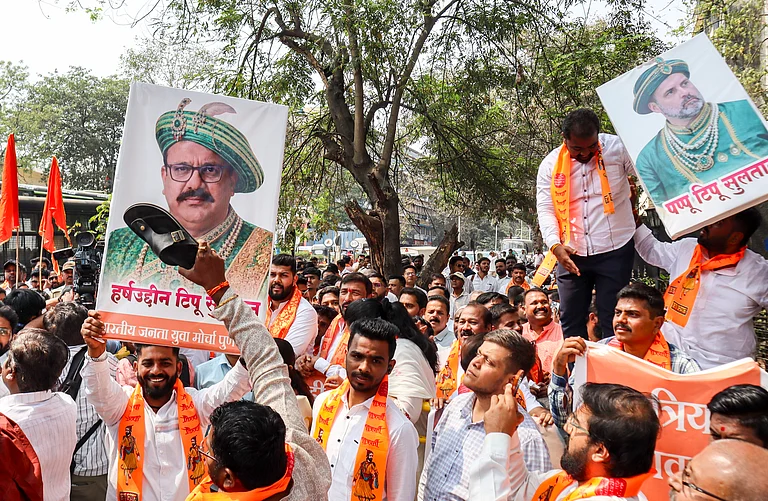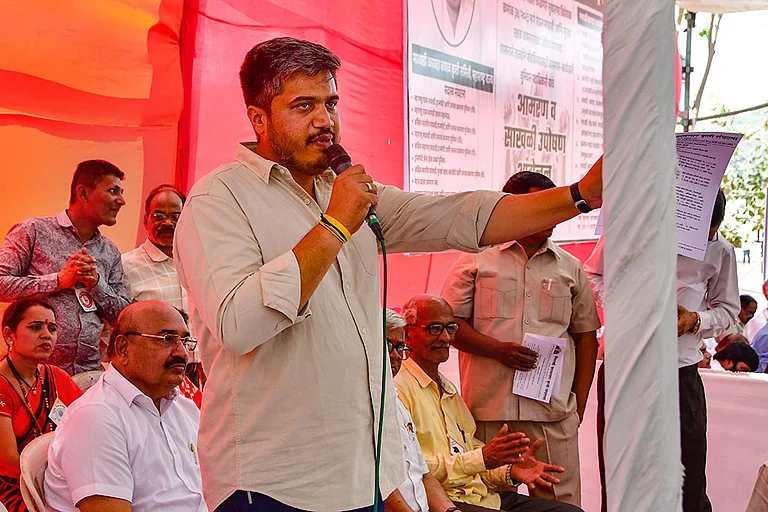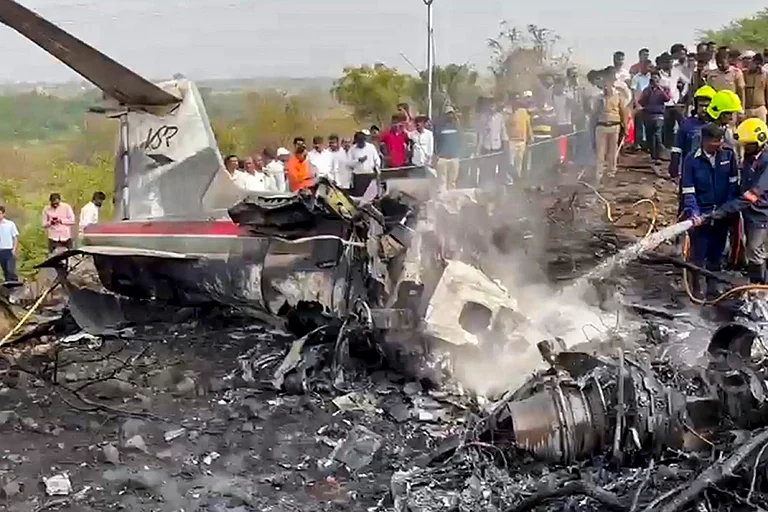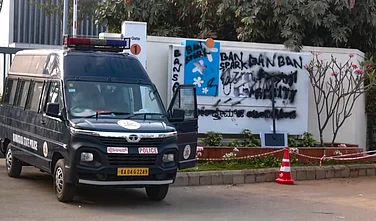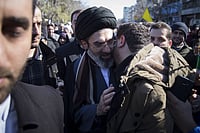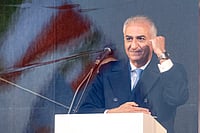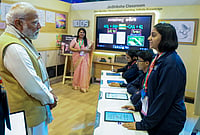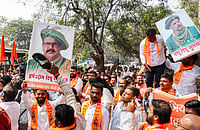
Despite policies, accessibility in schools, transport, and public spaces remains limited.
New initiatives like Pune’s disability centres signal progress but remain one-dimensional.
The Inclusion Yatra seeks to build awareness and empathy through dialogue across Maharashtra.
Diksha Dinde had spent time in the UK where she noticed an impressive level of inclusivity for people with disabilities. As an advocate of disabled people’s rights and a person with disability (PwD) herself, Diksha Dinde decided that she wasn’t going to wait for a day come when India too would be that accessible. She promised herself that before 2035, she would make public schools and spaces in Maharashtra accessible, create opportunities for inclusive education and embark on an Inclusion Yatra.
According to the 2011 Census, the population of the differently abled in India was estimated to be around 26.8 million (2.21 per cent of the total population). Approximately 8.1 million of this population belong to urban areas. Despite provisions such as the Rights of Persons with Disabilities Act, 2016 (SIPDA), the Niramaya Health Insurance Scheme and the District Disability Rehabilitation Centre (DDRC) and other local schemes, Dinde points out that inclusion has been treated as just a “word on paper.”
She asks, “How many disabled people are actually in the room when these inclusion developmental decisions are made? Are our voices really being heard?”
Government Efforts Show Progress but Fall Short
Dinde notes that cities like Pune and Pimpri-Chinchwad in Maharashtra have taken the inclusion of PwDs seriously and made efforts to ensure the city space accommodates the needs of PwDs. She states, “Municipalities are doing better in some areas, with more upgrades and visible efforts to include disabled people in their planning,” she says.
In March 2025, the PMC’s Social Development Department set up a treatment and counselling centre for persons with disabilities and special children at Divyang Park, Balewadi, as a part of the Disability Welfare Scheme. This centre is fully funded by the PMC and is administered by the Umnag Institution of Autism and Multi-Disability Centre. Equipped with a staff of six, with four specialised therapists, the centre offers subsidised treatment to all patients.
Dr Mansy Thakker, a Project Head of Umang Pune and Consultant Early Interventionist, says, “One of the main problems people with disabilities and neurodivergent individuals face is exorbitant fees. Especially in the early years. In private counselling, the fees go up to Rs 45,000 just for a month. That’s why centres like these that provide lower rates allow for all economic strata to see a lot of walk-in patients who continue with the treatment they receive here.”
Patients referred to the Balewadi centre receive an additional 50 per cent discount on already subsidised rates. Dr Thakker notes that in the few months since the centre began operating, it has seen a daily footfall of at least ten patients, with seven receiving regular treatment at the facility.
“Families of PwDs are exhausted,” she says. “Finding a facility that suits a child, whether in the private or public sector, is far too complicated. The PMC recognised this, which is why we don’t just offer subsidised rates—we also provide state-of-the-art technology and equipment on par with private hospitals. The centre has an ergonomically designed sensory playground that is inclusive and accessible for all PwDs, and even a bus service to bring patients to the facility.”
All of the equipment, infrastructure and property have been provided by the PMC, in consultation with the Umang Foundation.
Thakker stresses that awareness around the need to integrate PwDs into the mainstream has steadily grown in cities. “I have seen this awareness spreading rapidly,” she says. “In Maharashtra, inclusivity has now become a wave.”
However, these efforts have proven to be too little too late and one-dimensional.
Dinde points out the gap between Pune’s image as a smart city and the lived reality of disabled people. “Pune calls itself a smart city, but for many disabled people, it doesn’t feel that way.” She adds, “The metro is a good step forward, but even there, full accessibility is missing. Getting to stations is hard, and the first and last mile is not planned well for wheelchair users or people with other disabilities. Footpaths are often broken or blocked, and many government and private buildings are still not accessible. If Pune really wants to be a smart city, inclusion has to be at the heart of everything, not just a word on paper.”
Discrimination in the Daily Lives of PwDs
Speaking from personal experience, Dinde describes the discrimination she continues to face. “I’ve had Uber drivers cancel or refuse rides simply because I’m a wheelchair user.”
She recalls her first international flight to Malaysia when an airline staff member declined to take responsibility for assisting her and asked her to go home.
“That moment was humiliating—it showed me that even something as basic as the right to travel freely isn’t guaranteed for many disabled people. Schools were no different. I was denied admission because the principal said they didn’t have the facilities to accommodate a wheelchair user.”
Her experiences, Dinde stresses, are not unique. She adds that for people with physical disabilities, it is not just about missing ramps or lifts; it is about a system that doesn’t see PwDs as students worth adjusting for.
“These experiences are part of a larger story shared by almost every disabled person in India. Students are denied education because schools aren’t built for them. Job opportunities slip away because workplaces refuse to adapt. Families are left to navigate a maze of inaccessible government offices, inadequate policies, and stigma, often feeling invisible and excluded from the very systems designed to serve them. This isn’t about inconvenience; it’s about systemic barriers that strip disabled people of independence, dignity and equality.”
Changing Mindsets
Dr Thakker points out that the need of the hour is to spread awareness and education to achieve inclusion. She says, “Most people don’t understand the extent to which differently abled people exist. We think they exist on the margins until disability exists in our family.”
She lists the three main factors needed to build an inclusive society: awareness in general society, awareness among primary circles of PwDs like parents and schools, and, in genetic cases, awareness among women pre-pregnancy.
“Typical children must be educated by their families on how to behave with special needs children; this can only come about if parents and general society are made aware of disability and how to be inclusive,” she says, adding, “Sometimes we have been called to schools for outreach programmes, but on arrival we are asked not to mention words such as disability or autism explicitly.”
Thakker explains that since a majority of disabilities can be predicted by genetic testing and family history, it is pivotal to undergo genetic testing before pregnancy so that parents can be prepared to expect special needs children. She also insists that mandatory developmental testing, which lasts less than half an hour, be conducted on children at different milestones, just as the government-mandated vaccinations they receive.
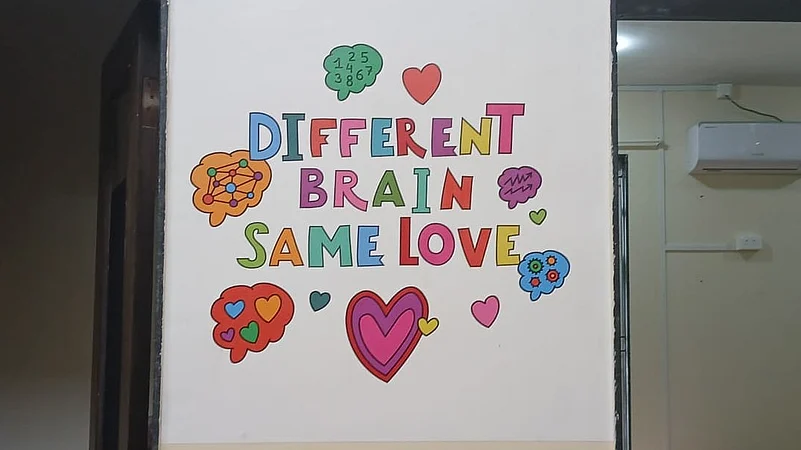
Both Dinde and Thakker believe that setting up centres, while necessary, only focuses on one aspect of the larger mission to make cities inclusive.
Ramdas Chavan, Chief Social Development Officer of PMC, explains that the PMC has conducted awareness drives in both urban and rural areas regarding disability. However, the PMC is yet to conduct or announce any awareness drive for this year.
While the PMC had also announced that there would be city-wide surveys for understanding PwDs, a PMC official says that the budget for the same has not been allocated, as they have not put forth a request for it.
Hundred-Day Inclusion Yatra Across Maharashtra
Dinde will begin her Inclusion Yatra on September 8, 2025 from Pune. Over 100 days, it will travel across all districts of Maharashtra, holding workshops with schools, colleges, teachers, parents, and local governments.
According to the 2011 Census, 45 per cent of persons with disabilities in India are illiterate, only 9 per cent complete secondary education, and just 0.56 per cent reach higher education. “These are not just numbers—they are untold stories of children left out of the mainstream. Changing this picture and building empathy is the purpose of this Yatra,” she says.
The Inclusion Yatra is deeply personal to her. “I’ve been working in disability rights for over a decade, and my time in the UK showed me what real accessibility looks like,” she says. “That experience made me question why something as basic as an accessible school or bus stop still feels like a privilege in India. ...Out of many conversations with my teammates, Nitin and Amol, came the Inclusion Yatra—a journey where disabled and non-disabled people come together to have real, open dialogue.”
Thakker too hopes to see a day when the children with whom she works will be able to have their own world where people will include them. “It takes a village to raise a special needs child,” she says.
The work of education and spreading awareness that Dinde and Thakker have taken on is only a catalyst in a much larger chain reaction in the Indian population to start making space to include those who are not seen as part of the ‘mainstream’.








